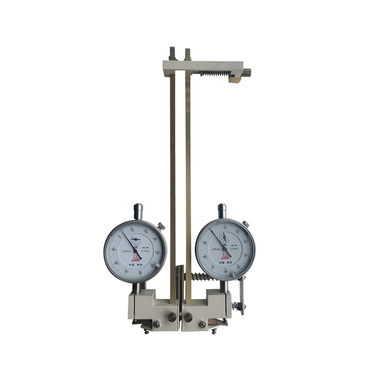Advanced Digital Tensile Strength Testing Equipment for Material Analysis and Quality Control
Understanding Electronic Tensile Strength Testers Principles and Applications
The field of materials testing is vital in various industries, including manufacturing, construction, and engineering. Among the most widely used devices in this realm is the electronic tensile strength tester, an indispensable tool for assessing the tensile properties of materials. This article explores the principles, features, and applications of electronic tensile strength testers, highlighting their significance in ensuring quality and safety in material selection and usage.
The Basics of Tensile Testing
Tensile testing is a fundamental mechanical test that involves applying a controlled force to a material until it fails. The primary objective is to measure various properties such as tensile strength, yield strength, elongation, and modulus of elasticity. These parameters provide crucial insights into how a material will behave under tension, enabling engineers and designers to make informed decisions regarding material selection for specific applications.
Electronic Tensile Strength Testers An Overview
Electronic tensile strength testers are advanced instruments that automate the tensile testing process, providing accurate and reliable results. Unlike their mechanical counterparts, electronic testers utilize electronic sensors and computerized systems to measure the force applied to a sample and its corresponding elongation. This digital approach offers several benefits, including improved precision, faster results, and enhanced data analysis capabilities.
Key Features
1. High-Precision Load Cells Electronic tensile strength testers are equipped with high-precision load cells that accurately measure the applied force. This precision is critical for obtaining reliable data during testing.
2. Data Acquisition and Analysis The electronic nature of these testers allows for real-time data acquisition and analysis. Users can visualize stress-strain curves, obtain maximum load values, and calculate mechanical properties, all of which facilitate comprehensive analysis.
3. User-Friendly Interfaces Most modern electronic testers come with user-friendly interfaces that simplify the testing process. Operators can easily set parameters, monitor the test in real-time, and generate reports with minimal effort.
4. Versatility Electronic tensile strength testers can accommodate a wide range of materials, from metals and plastics to composites and textiles. This versatility makes them suitable for various industries, including aerospace, automotive, and civil engineering.
electronic tensile strength tester

5. Compliance with Standards These testers are often designed to comply with international testing standards, such as ASTM, ISO, and EN, ensuring consistent and reliable results that meet industry benchmarks.
Applications Across Industries
Electronic tensile strength testers are utilized in multiple sectors, underscoring their versatility and importance
1. Manufacturing In manufacturing, quality control is paramount. Electronic tensile testers are employed to assess the tensile properties of raw materials and finished products, ensuring they meet required specifications and standards.
2. Research and Development In R&D, these testers aid in the development of new materials by allowing researchers to investigate and compare the tensile properties of various formulations, contributing to innovation and improvement.
3. Construction The construction industry relies on electronic tensile strength testers for evaluating materials such as steel and concrete. This testing is crucial for ensuring the safety and reliability of structures.
4. Automotive In the automotive sector, tensile testing is integral to the design and safety evaluation of components. Electronic testers help assess the performance of parts under stress, ensuring they can withstand operational demands.
5. Textiles In the textile industry, tensile strength testers assess the durability and performance of fabrics, ensuring they meet consumer and regulatory standards.
Conclusion
Electronic tensile strength testers are vital tools in the landscape of materials testing, providing reliable data that informs critical engineering and design decisions. Their ability to deliver high-precision measurements, facilitate real-time data analysis, and comply with industry standards makes them indispensable across various sectors. As industries continue to evolve, the role of electronic tensile strength testers will undoubtedly expand, further contributing to advancements in material science and engineering. Whether in quality control, research and development, or compliance testing, these devices ensure that materials perform safely and effectively in their intended applications, ultimately enhancing product quality and safety in a wide array of fields.
-
reliable-performance-testing-with-advanced-aging-chamber-solutions
NewsAug.23,2025
-
advancing-precision-with-profile-projector-technology
NewsAug.23,2025
-
uv-led-ultraviolet-crosslinking-technology-innovation-and-prospects
NewsAug.23,2025
-
ensuring-safety-and-compliance
NewsAug.23,2025
-
electrical-properties-testing-in-modern-applications
NewsAug.23,2025
-
universal-tensile-testing-machine-applications-in-modern-electrical-and-material-testing
NewsAug.23,2025
 Copyright © 2025 Hebei Fangyuan Instrument & Equipment Co.,Ltd. All Rights Reserved. Sitemap | Privacy Policy
Copyright © 2025 Hebei Fangyuan Instrument & Equipment Co.,Ltd. All Rights Reserved. Sitemap | Privacy Policy

